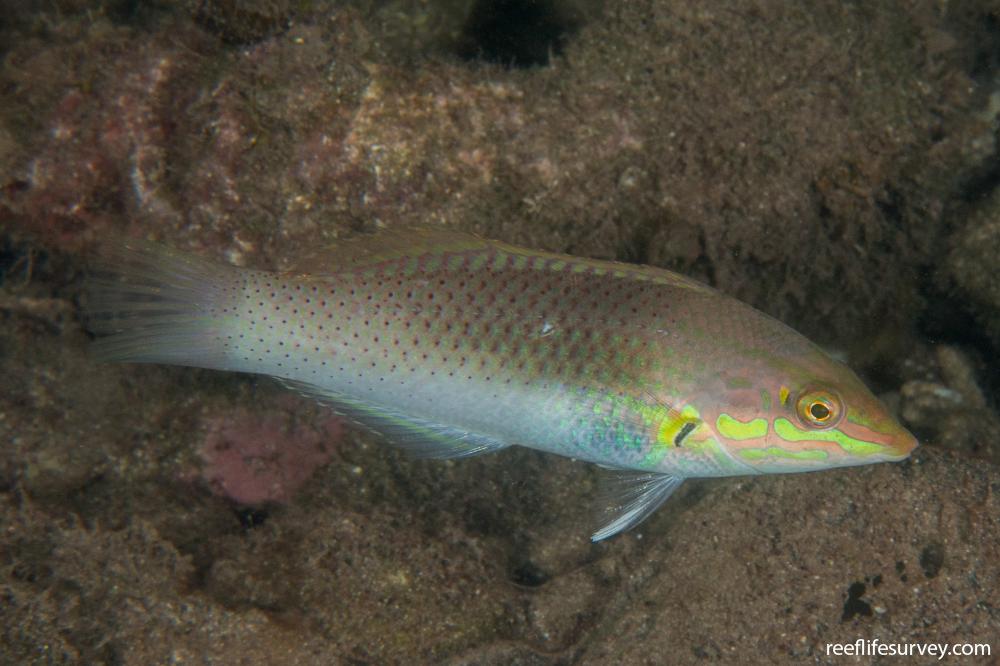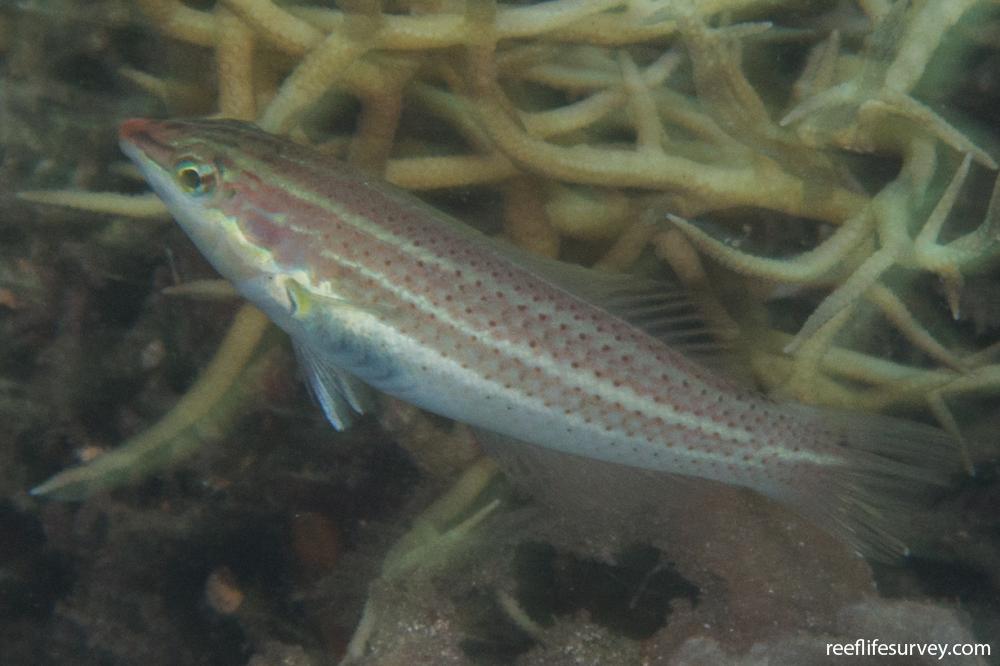Halichoeres chloropterus
Pastel-green Wrasse | Black-blotched Rainbowfish | Black-blotched Wrasse | Dark-blotch WrasseSimilar Species
Same Genus
Distribution
Tropical Indo-Pacific
Description
Males pale green, head with pink and green squiggles and a large dark patch on upper body. Females green to mauve, fine evenly-spaced black spots aligned in rows on side, small yellow patch behind eye, pectoral fin with yellow base, pink stripe from snout through eye and a series of dark curved lines on lower side behind pectoral fin which diffuse to a faint grey area with age. Juveniles translucent green and lack ocelli of other similar green wrasses.
Information
Max Size: 19 cm
Sea Temperature Range: 22.9-31.2°C
Depth: 0-10 m
Habitat Generalization Index: 7.87
Also referred to as the SGI (Species Generalisation Index), this describes the habitat niche breadth of the species. Species with values less than 15 are found in a relatively narrow range of reef habitat types (specialists), while those over 25 may be found on most hard substrates within their range (generalists). Learn more here.
Conservation and Rarity
IUCN Status: Least Concern
Occurrence: Frequent (12.6% of sites)
Occurrence describes how often the species is found on surveys within its distribution. It is calculated as the % of reef sites surveyed by RLS divers across all the ecoregions in which the species has been observed
Abundance: Several (6 per transect)
Abundance is calculated as the average number of individuals recorded per RLS transect, where present.
Edit by: Joe Shields






















































![Halichoeres sp. [orientalis]](https://images.reeflifesurvey.com/0/species_c9_574515caa4dd2.w400.h266.jpg)

